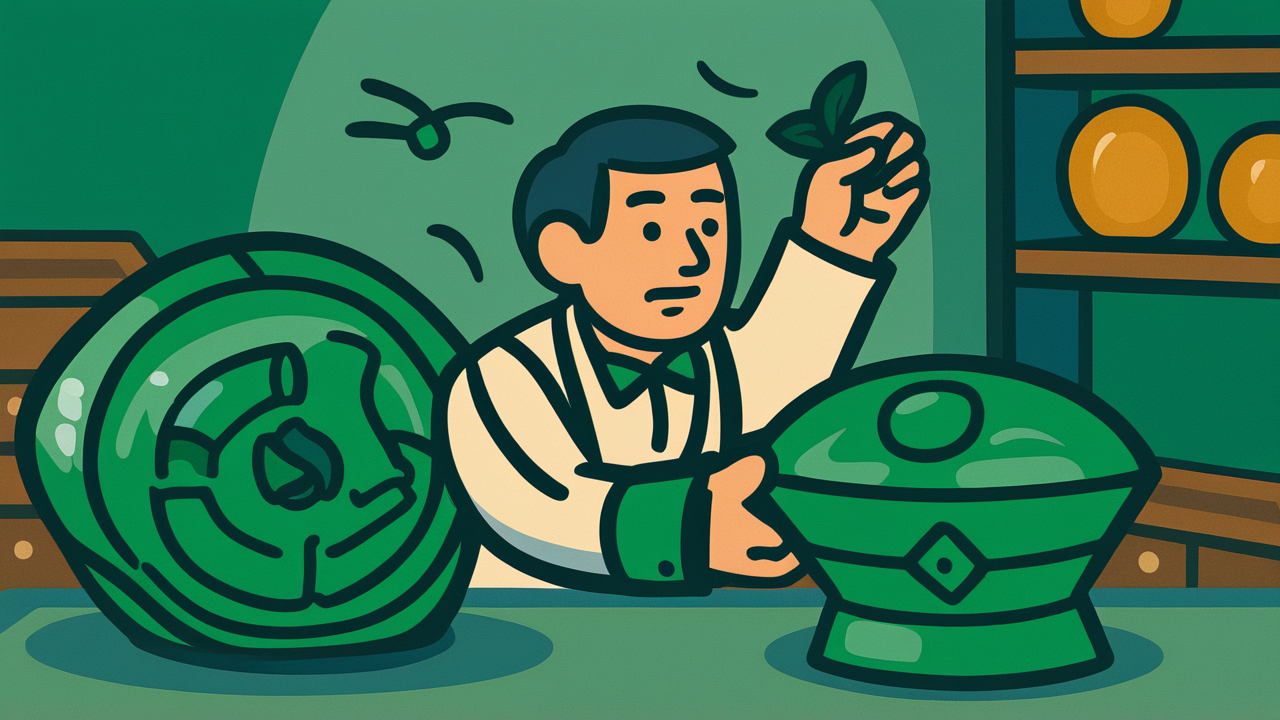How to Read “艱難汝を玉にす”
Kannan nanji wo tama ni su
Meaning of “艱難汝を玉にす”
“Hardship you jewel makes” means that by experiencing difficulties and hardships, people grow into individuals with admirable character.
The “jewel” here does not refer to a gemstone, but rather to a polished beautiful stone, representing excellent character and dignity. Just as a rough stone becomes a beautiful jewel through long periods of polishing, people can grow internally and become individuals of character by overcoming various difficulties.
This proverb is used when wanting to find meaning in current difficulties or when encouraging someone. Rather than simply saying “do your best,” it is used with the deep meaning that hardship surely has value and will help you grow as a person. Even today, it is cherished as words of encouragement for those who have experienced setbacks or failures, and as words to inspire oneself.
Origin and Etymology
“Hardship you jewel makes” is a phrase that originates from Chinese classics. The source of this expression is thought to be found in the phrase “hardship perfects people” from ancient Chinese literature.
“Kannan” means difficulty or hardship, “nanji” is an archaic word meaning “you.” And the “jewel” in “makes into a jewel” does not refer to a gemstone, but to a polished beautiful stone, representing admirable character. In ancient China, jade was considered the most precious treasure and was also a symbol of the gentleman.
It is presumed that this phrase was transmitted to Japan along with the study of Chinese literature. In Edo period education, Chinese learning was emphasized, and such maxims spread mainly among the samurai class. From the Meiji period onward, it permeated among the general public as moral teaching within modern education.
What’s interesting is that this phrase is not mere spiritual theory, but a metaphor born from the actual process of polishing jade. Rough stones become beautiful jade only after being carefully polished over long periods. This physical process is used as a metaphor for human growth processes.
Usage Examples
- Job hunting has been tough with many rejections, but I’ll keep trying believing that hardship you jewel makes
- Watching my son’s exam preparation, I’m reminded of the phrase hardship you jewel makes
Modern Interpretation
In modern society, subtle changes have emerged in the interpretation of “Hardship you jewel makes.” Under the influence of the information age, we who have become accustomed to getting answers immediately may find it more difficult than before to endure long-term difficulties.
With the spread of social media, others’ successes have become more visible, and in modern times we tend to fall into the illusion that we alone are struggling. However, this proverb teaches us that “effort and difficulties in invisible areas create value.” Behind the glamorous posts of influencers, there must surely have been much trial and error.
With technological advancement automating many tasks, creativity and judgment that only humans can provide have become more important. These abilities are precisely what are honed through various experiences. In an age when AI can provide answers, the value of insight and humanity gained through difficulties is increasing.
However, in modern times, the idea that “unnecessary hardship should be avoided” is also important. There’s no need to blindly believe this proverb and unnecessarily choose difficult paths when efficient methods exist. What’s important is the attitude of viewing unavoidable difficulties as opportunities for growth.
When AI Hears This
Jade forms deep underground at temperatures of 200-300°C under pressure thousands of times greater than atmospheric pressure. This extreme high-pressure, high-temperature environment reorganizes the mineral’s crystal structure, creating a durable gemstone with a Mohs hardness of 6-7. Fascinatingly, the human brain grows through a remarkably similar mechanism.
Neuroscience describes a phenomenon called the “stress inoculation effect.” When the brain experiences moderate stress, cortisol secretion causes neurons in the hippocampus to temporarily shrink, but during the subsequent recovery process, they form more neural connections than before. This process closely mirrors how jade densifies its crystal structure under pressure.
Even more noteworthy is the role of temperature. Heat is essential for jade formation, promoting molecular rearrangement. In humans, we’ve discovered that “heated emotions” during difficult situations—anger, frustration, anxiety—actually enhance brain plasticity. Emotional experiences strengthen memory consolidation and improve problem-solving abilities.
Geologically speaking, once jade forms, it becomes extremely resistant to weathering. Similarly, the mental strength of humans who overcome difficulties shows resilience against subsequent trials. Psychology’s “post-traumatic growth” theory demonstrates precisely this jade-formation process within the human psyche. Without knowing the scientific basis, ancient people intuitively understood that natural laws and human growth follow the same fundamental principles.
Lessons for Today
What this proverb teaches us today is the importance of having the courage to face difficulties rather than running away from them. In modern society, efficiency and comfort tend to be emphasized, but truly valuable things in life are built up over time.
What’s important is a shift in perspective to view difficulties not as “obstacles to be avoided” but as “materials for growth.” When you fail at work, when you worry about relationships, when you face health problems, consider that all of these are whetstones that polish you.
In modern times, we tend to immediately seek solutions when facing difficulties, but sometimes the period when answers cannot be found has value in itself. In that confusion and anxiety, you are thinking more deeply about things than before and becoming a person who can empathize with others’ pain.
This proverb also teaches us the importance of continuing to grow while accepting our imperfect selves, rather than aiming for perfection. Your worries and struggles today will surely become important experiences that support your future self.



Comments